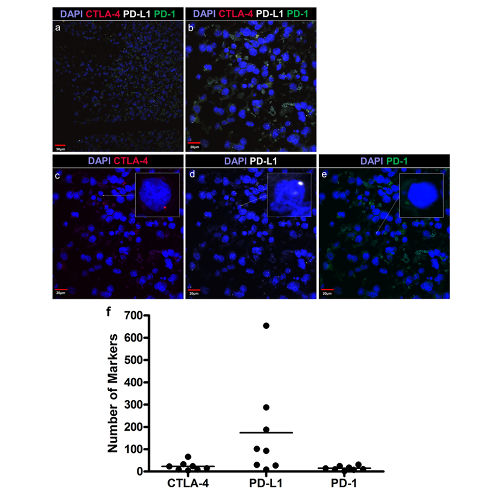
March 14, 2018
Dean Wolfe and Dr. Stephen Konieczny presented Dr. Chubykin with a Team Award at the 2018 Faculty and Staff Recognition Luncheon on March 14, 2018.
Congratulations to Alexander Chubykin, Ph.D. for winning a 2018 College of Science Faculty and Staff Team Award!

March 12, 2018
Hyowon (Hugh) Lee and Hyunsu Park from the Purdue Weldon School of Biomedical Engineering, alongside Pavel Takmakov have found that the increase in electrode perimeter leads to an increase in maximum charge injection capacity. In this work, they provide a systematic electrochemical evaluation of charge injection capacities of serpentine and fractal-shaped platinum microelectrodes and compare their performance with traditional circular microelectrodes. Furthermore, they have found that the electrode geometry can have even more significant impact on electrode performance than having a larger perimeter for a given surface area. Their results suggest that electrode design can significantly affect both Faradaic and non-Faradaic electrochemical processes, which may be optimized to enable a more energy efficient design for neurostimulation. Thanks to the team for their contributions!
Electrochemical Evaluations of Fractal Microelectrodes for Energy Efficient Neurostimulation

February 28, 2018
Genomic analysis, together with atomic-level structural modeling and in vitro biophysical/pharmacological analysis, can predict efficacy of specific drugs in a patient-specific manner. iPSC-derived neurons may prove useful for patient-specific drug screening. Studies on inherited pain disorders may inform research on pain in broader populations. Development of a new class of isoform-selective channel blockers may enhance the treatment of pain while reducing undesirable side effects. Discovery, based on genomic analysis, of new mechanisms of drug action may lead to more effective treatment. Chronic pain is a global unmet medical need. Most existing treatments are only partially effective or have side effects that limit their use. Rapid progress in elucidating the contribution of specific genes, including those that encode peripheral voltage-gated sodium channels, to the pathobiology of chronic pain suggests that it may be possible to advance pain pharmacotherapy. Focusing on voltage-gated sodium channel NaV1.7 as an example, this article reviews recent progress in developing patient-specific induced pluripotent stem cells (iPSCs) and their differentiation into sensory neurons, together with advances in structural modeling, that have provided a basis for first-in-human translational studies. These new approaches will hopefully transform the treatment of pain from trial-and-error toward genomically guided, precision pharmacotherapy.
Dr. Yang Yang- "NaV1.7 as a Pharmacogenomic Target for Pain: Moving Toward Precision Medicine"

February 28, 2018
The human visual cortex extracts both spatial and temporal visual features to support perception and guide behavior. Deep convolutional neural networks (CNNs) provide a computational framework to model cortical representation and organization for spatial visual processing, but unable to explain how the brain processes temporal information. To overcome this limitation, we extended a CNN by adding recurrent connections to different layers of the CNN to allow spatial representations to be remembered and accumulated over time. The extended model, or the recurrent neural network (RNN), embodied a hierarchical and distributed model of process memory as an integral part of visual processing. Unlike the CNN, the RNN learned spatiotemporal features from videos to enable action recognition. The RNN better predicted cortical responses to natural movie stimuli than the CNN, at all visual areas, especially those along the dorsal stream. As a fully observable model of visual processing, the RNN also revealed a cortical hierarchy of temporal receptive window, dynamics of process memory, and spatiotemporal representations. These results support the hypothesis of process memory, and demonstrate the potential of using the RNN for in-depth computational understanding of dynamic natural vision.
Dr. Ziongming Liu- "Deep recurrent neural network reveals a hierarchy of process memory during dynamic natural vision".

February 28, 2018
Dr. Esteban Fernandez-Juricic, professor of Biological Sciences and member of the Purdue Institute for Integrative Neuroscience (PIIN) has been voted President-elect of the Animal Behavior Society.
Read More about "Dr. Esteban Fernandez-Juricic voted President-elect of the Animal Behavior Society"

February 21, 2018
Kerri Rodriguez and Swetha Ramadesikan were winners in the 2018 2018 Sigma Xi Poster Night competition!
Read More about "Congratulations to Kerri Rodriguez and Swetha Ramadesikan!"

February 14, 2018
Professor R. Timothy Bentley, a member of the Purdue Institute for Integrative Neuroscience and Associate Professor, Neurology and Neurosurgery in the Department of Basic Medical Sciences, and his collaborators Margaret Miller, Stephanie A. Thomovsky, Deborah W. Knap, Hock Gan Heng and Aaron Cohen-Gadol (IU) recently published in the Journal of Neuro-Oncology. The research article “Immunologic and gene expression pro les of spontaneous canine oligodendrogliomas; focused on the development of spontaneous brain tumors in pet dogs as a model of human brain tumors, while providing cutting-edge surgery and treatment for these pets. PIIN provided pilot funding to obtain the glioma (brain tumor) tissues and other samples through canine brain tumor surgery.
Immunologic and gene expression profiles of spontaneous canine oligodendrogliomas

February 13, 2018
The award recognizes Dr. Sangha as an outstanding former trainee who has achieved scientific, professional and academic excellence. Dr. Sangha will receive a gift in recognition of the award and will be hosted to deliver the Alumnus of the Year Lecture to the Hotchkiss Brain Institute this fall.
January 31, 2018
Dr. Zhongming Liu, a member of PIIN and Assistant Professor of Biomedical Engineering and Electrical & Computer Engineering and his collaborators recently published in the scientific journal, PLoS ONE. “Vagal nerve stimulation triggers widespread responses and alters large-scale functional connectivity in the rat brain.” The research project investigates the effects and mechanism of vagus nerve stimulation as a potential bioelectric treatment of neurological and peripheral disorders by using high-field functional magnetic resonance imaging. The Purdue interdisciplinary team also includes Dr. Terry Powley, Distinguished Professor of Behavioral Neuroscience and PIIN member. Jiayue Cao, the first author of this publication, received a travel award from PIIN to present these findings at the 2018 Scientific Meeting of the International Society of Magnetic Resonance for Medicine.
Dr. Zhongming Liu-“Vagal nerve stimulation triggers widespread responses and alters large-scale functional connectivity in the rat brain.”

January 26, 2018
Riyi Shi, professor of neuroscience and biomedical engineering in the Department of Basic Medical Sciences, College of Veterinary Medicine and Weldon School of Biomedical Engineering and PIIN leadership member was featured in the Purdue TODAY.